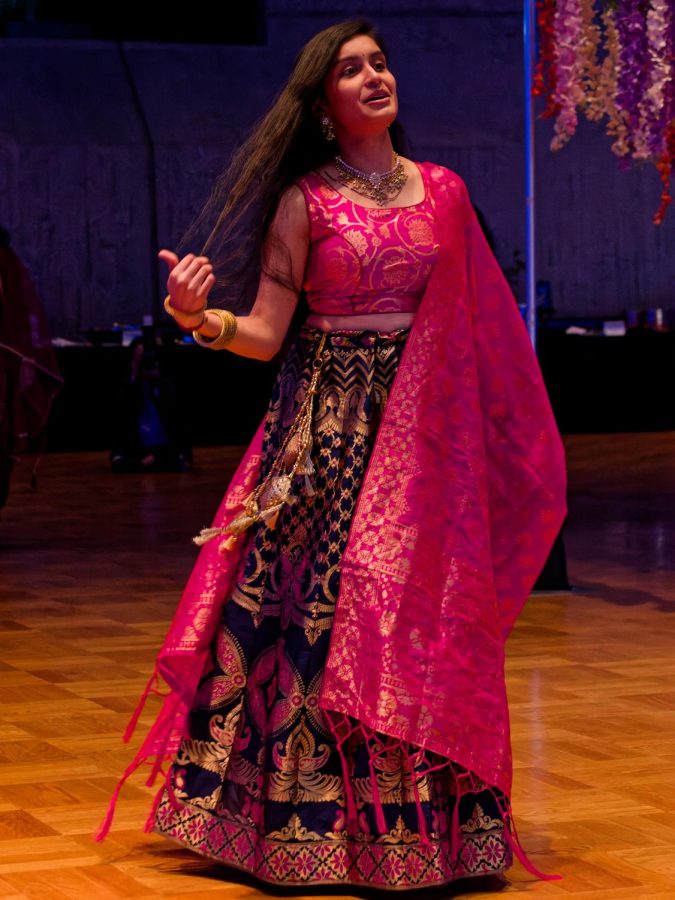![libya_3[1]](https://dailycollegian.com/media/2011/02/libya_31-e1298431542853-300x177.jpg)
The crowds called for the release of Fathi Terbil, a human rights lawyer and activist who has been critical of the government, according to BBC. Terbil represents a group of families whose, according to Foreign Policy Magazine, “sons were massacred by Libyan authorities in 1996 in Tripoli’s infamous Abu Salim prison, where an estimated 1,200 prisoners, mostly opponents of the regime, were rounded up and gunned down in the span of a few hours.”
Terbil was arrested on February 15, and while the crowd originally gathered to protest his arrest, upon his release, the protests turned into anti-government demonstrations. Two days later, on Thursday, February 17, Libyan dissidents participated in a “Day of Rage to challenge Qaddafi’s 41-year-old iron rule.”
Many western media outlets were surprised by the sudden uprising of the people, and the unrest was not reported by Libya’s state-run media, that instead focused on rallies held in Tripoli, the nation’s capital, in support of Colonel Qaddafi.
Libya is a country about the size of France, Germany, Italy, and Spain combined with a population of approximately 6.5 million. It has been ruled for 42 years by Col. Qaddafi.
Oil is the main source of revenue for the African nation and while its oil revenues make it one of the wealthiest nations in Africa, the revenue often doesn’t reach the general public. There is massive unemployment in the nation, estimated at 30 percent by the New York Times. Those with jobs, are often only able to find part-time employment.
More than half the population is under the age of 18. Malnutrition and anemia are among the most common health problems in the country, especially affecting youth.
Qaddafi, now 62, came to power when he was 27 years old when he held the position of junior military officer. He took power in September of 1969 by overthrowing King Idris, a leader supported by Western leaders following World War II. Since then, Qaddafi has ruled with an iron first, and has attempted to expand his influence through Africa.
Internationally, he is thought of as an irrational and often bizarre leader. In the 1980’s President Reagan gave him the nickname “the mad dog of the Middle East.” In Libya, many fear to speak his name.
The crowds that began to gather last week were inspired by the revolutions of the Tunisian and Egyptian people, and much like those protesters, used Facebook and Twitter to organize and call for change in their country.
Demonstrations spread across the nation, and protesters were met by riot police officers and confrontations led to many deaths. According to the BBC, witnesses reported that the police used rubber bullets, water cannons, and tear gas. On February 18 alone, 24 were reported dead, according to a report by the Human Rights Watch. Others that survived struggled to breathe while encapsulated in a fog of smoke and tear gas.
According to the Human Rights Watch, the death toll is up to at least 233 since February 17.
On February 19, the witnesses reported that riot police were using more brutal tactics. “Accounts of the use of live ammunition by security forces, including machine gun fire, against protesters near the Katiba in Benghazi, resulting in dozens of deaths and injuries, raise serious concern that the authorities are using unjustified and unlawful force,” stated the report.
One demonstrator told the Human Rights Watch, “I could see the men with yellow berets shooting at us with live gunfire, and dozens fell to the ground. This went on for a long period of time, and I left with the injured to the hospital.”
The following day, as protests continued, the government shut down nearly all forms of communication beyond the country, including internet and cell phone use. The New York Times reported on Tuesday, February 22, that access to international journalists is constrained, and information from inside the country has remained very limited.
“A potential human rights catastrophe is unfolding in Libya as protesters brave live gunfire and death,” said Sarah Leah Whitson, Middle East and North Africa director at Human Rights Watch in the report. “Libya is trying to impose an information blackout, but it can’t hide a massacre.”
On Tuesday, February 22, international leaders condemned the violence as it continued to build.
Secretary of State Hilary Rodham Clinton condemned the actions of riot police and the brutality against anti-government demonstrators in Libya. She said in a statement for Qaddafi to “stop this unacceptable bloodshed.”
United Nations Secretary General Ban Ki-moon, said on Monday that he spoke to Qaddafi and pressed him to put an end to the attacks immediately.
In addition to international leaders speaking out, an increasing amount of Libyan embassies have flown the flag of the era before Qaddafi, a flag now considered the banner of the revolt.
Despite international backlash, Qaddafi vowed “to fight to the last drop of blood,” as violence between his followers and anti-government protesters intensified, according to the New York Times.
“In the long rambling address, he said those challenging his government “deserved to die.” He blamed the unrest on ‘foreign hands,’ a small group of people distributing pills, brainwashing, and the naïve desire of young people to imitate the uprisings in Egypt and Tunisia.”
Without acknowledging the gravity of the crisis in the streets of the capital, he described himself in sweeping, megalomaniacal terms. ‘Muammar Qaddafi is history, resistance, liberty, glory, revolution,’ he declared.”
The leader’s son, Saif al-Islam al-Qaddafi, also spoke against the protesters. According to Foreign Policy magazine, “he described the protests as part of ‘a plot against Libya,’ and warned of ‘rivers of blood’ if the rebellion continues.”
Michelle Williams can be reached at [email protected].











Arafat • Feb 23, 2011 at 9:20 pm
All theMuslim despots and insatiable royal families are the natural outgrowth of a religion founded by a religious despot. It’s well worth noting that the current news out of Egypt and Tunisia suggest Islamists will play a meaningful role. This is only to be expected in an Islamic nation.
Democracy and Islam simply do not mesh. Any and every Islamic nation has some degree of Sharia law which, by definition, is undemocratic. You will see Egypt, Tunisia and Libya will end up with military rule, or a strongman despot, or a strongman theocrat. This is part and parcel of Islam. Democracy is not and never will be.